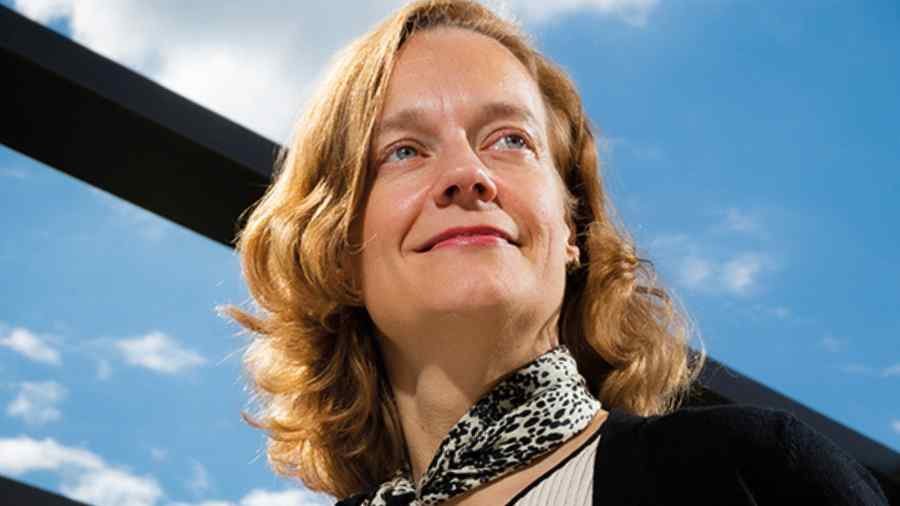Esther Wallington: Transforming Public Sector Leadership Through People, Purpose, and Progress

In the world of modern public administration, few names stand out as clearly as Esther Wallington. Her career represents a powerful blend of leadership, transformation, and human-centred management. As one of the United Kingdom’s most respected HR executives, Wallington has played a key role in reshaping how the civil service manages its people, culture, and workforce strategy. From her tenure as Chief People Officer at HM Revenue and Customs (HMRC) to her more recent role as Director General of People at the Ministry of Defence (MoD), she has redefined what it means to lead with empathy, structure, and vision in complex public organisations.
Early Career and Background
Before becoming one of the most influential figures in UK public sector leadership, Esther Wallington built her career steadily through key roles in government departments. Her early career was rooted in human resources and people management, where she developed a deep understanding of how strategy and culture must align to achieve national objectives.
In her early years, she worked across several departments, gaining experience in talent management, succession planning, organisational design, and capability development. Her role in the Cabinet Office marked one of her first major career milestones. There, she was responsible for developing leadership capability across the Top 200 civil service executives—a vital group shaping government strategy and policy delivery. Her work involved identifying and nurturing leadership talent to ensure that the UK’s civil service had the capacity to adapt to future challenges.
Wallington’s early contributions reflected her firm belief that strong leadership is built not only through technical skill but also through emotional intelligence, inclusivity, and continuous learning.
Chief People Officer at HMRC
Esther Wallington’s appointment as Chief People Officer (CPO) at HMRC was a defining moment both for her and for the department she served. Taking on this position in 2016, she inherited responsibility for one of the largest workforces in the UK—over 75,000 employees spread across multiple regions. HMRC, responsible for tax collection, customs, and revenue management, is a vital part of the British government, and its success depends heavily on a motivated and capable workforce.
Wallington’s vision for HMRC’s people strategy was ambitious. She sought to modernise HR practices, integrate technology into workforce planning, and create a culture that values inclusion and personal growth. Under her leadership, HMRC invested in digital learning platforms, enhanced leadership development programmes, and refined its approach to diversity and wellbeing.
Her emphasis on employee engagement transformed the internal culture. Wallington believed that civil servants should feel valued not just as professionals but as individuals whose work contributes directly to national wellbeing. This people-first perspective significantly improved HMRC’s ability to attract, retain, and empower top talent, particularly in a competitive digital economy.
Focus on Organisational Culture and Inclusion
One of Wallington’s most distinctive leadership traits is her commitment to inclusion and belonging. She has long advocated for equality, diversity, and fairness in the workplace. During her time at HMRC, she ensured that all voices within the organisation were heard, regardless of background or position.
Her approach went beyond policy—it was cultural. She pushed for an environment where diverse perspectives were not only accepted but celebrated. By focusing on inclusive leadership, Wallington helped HMRC gain recognition as one of the most diverse departments within the UK civil service.
She often spoke publicly about the importance of psychological safety, transparency, and open communication in government organisations. For Wallington, diversity was not merely a target; it was an essential ingredient of innovation and better decision-making.
Transition to the Ministry of Defence
In 2024, Esther Wallington began a new chapter in her public service career when she was appointed as Director General of People at the Ministry of Defence (MoD). This role brought new challenges—overseeing HR strategy for both civilian staff and, indirectly, elements of the wider defence community.
Her appointment was seen as a strategic move to strengthen the MoD’s people management systems during a time when the defence sector was undergoing transformation. She was tasked with aligning workforce planning to evolving security needs, improving career pathways, and ensuring the wellbeing of thousands of employees working in demanding environments.
At the MoD, Wallington brought the same empathetic yet results-driven approach that defined her time at HMRC. She emphasised workforce resilience, leadership development, and continuous learning as key pillars for the department’s long-term success.
Leadership Philosophy and Management Style
Esther Wallington’s leadership philosophy is anchored in three guiding principles: people, purpose, and progress.
- People: She firmly believes that people are the foundation of every organisation. Whether in tax administration or defence, she views human potential as the ultimate driver of success. Her people-first philosophy encourages collaboration, transparency, and trust across all levels.
- Purpose: Wallington emphasises the need for clarity of mission. She believes every employee, from entry-level to senior leadership, should understand how their role contributes to the organisation’s goals. This sense of purpose drives motivation and accountability.
- Progress: Continuous improvement and innovation are at the heart of her approach. She encourages employees to embrace change, learn from mistakes, and pursue excellence in everything they do.
Her leadership style combines analytical decision-making with genuine compassion. She is known for listening carefully to colleagues, encouraging diverse opinions, and fostering environments where creativity and problem-solving can flourish.
Advocating for Future Work and Digital Transformation
Throughout her career, Esther Wallington has been an advocate for modernising the public sector through digital transformation and forward-thinking HR strategies. She recognises that the future of work depends on adaptability, technology, and lifelong learning.
At HMRC, she championed digital HR tools that automated repetitive processes and gave leaders access to data-driven insights. She viewed technology as an enabler—not a replacement—for human connection. Her initiatives included remote working frameworks, virtual learning environments, and flexible work models that proved essential during the COVID-19 pandemic.
Wallington has also addressed the challenges of hybrid work, emphasising the importance of maintaining engagement and culture even when employees are dispersed geographically. Her thought leadership has influenced broader civil service discussions on how government can remain agile in a rapidly changing world.
Contribution to Public Service Values
Beyond her formal titles, Wallington embodies the spirit of public service leadership. Her dedication to fairness, accountability, and collaboration has earned her respect across departments. She continuously reinforces the values that define effective governance: integrity, professionalism, and service to the public good.
Her impact extends beyond HR. By cultivating capable and confident leaders, she indirectly shapes how public services are delivered to millions of citizens. Her work ensures that government departments not only meet operational targets but also uphold humanity and empathy in their practices.
Personal and Professional Recognition
Esther Wallington’s influence has been recognised within and beyond the civil service. She is a Chartered Fellow of the Chartered Institute of Personnel and Development (CIPD) and a Fellow of the Royal Society of Arts (RSA), two of the most prestigious affiliations for leaders in people and organisational development.
She has also served as a Trustee of the National Centre for Circus Arts, demonstrating her commitment to supporting creativity and culture alongside her administrative duties. This blend of strategic insight and cultural appreciation highlights her holistic view of leadership—one that values both efficiency and expression.
Overcoming Challenges and Leading Through Change
Leadership in large public institutions is never without obstacles. Wallington’s tenure has included navigating periods of organisational restructuring, public scrutiny, and workforce anxiety, particularly during times of national change such as Brexit and the pandemic.
Her resilience and ability to communicate with honesty helped maintain trust across HMRC during uncertain times. Rather than avoiding difficult conversations, she engaged directly with employees, encouraging dialogue and empathy. Her transparent leadership helped maintain morale and focus even when operational pressures were high.
She often reminded teams that change, though uncomfortable, is a vital sign of progress. Under her direction, employees learned to view transformation not as a threat but as an opportunity for growth and innovation.
Influence on the Next Generation of Leaders
Perhaps one of Esther Wallington’s most lasting contributions is her role in shaping future leaders. She consistently advocates for leadership programmes that identify emerging talent and equip individuals with the skills needed for senior roles.
Her mentoring approach combines accountability with empowerment—challenging young professionals to think strategically while supporting their personal development. By doing so, she ensures that her leadership legacy extends beyond her own tenure, inspiring others to lead with integrity and compassion.
Wallington’s influence has reached beyond government departments, inspiring HR professionals, consultants, and business leaders to rethink how people strategies align with organisational goals. Her emphasis on learning, inclusion, and trust has become a model for leadership excellence across sectors.
Vision for the Future
As the world of work continues to evolve, Esther Wallington remains a symbol of forward-thinking leadership. Her focus on adaptability, collaboration, and purpose-driven management aligns perfectly with the challenges of the modern era.
In her current role at the Ministry of Defence, she continues to drive cultural and operational transformation. Her priorities include enhancing workforce agility, promoting wellbeing, and fostering leadership that can respond to emerging global realities.
Her vision for the future is clear: a civil service that is digital, inclusive, and human-centred—where employees thrive because they are trusted, supported, and empowered to innovate.
Conclusion
Esther Wallington stands as one of the most respected figures in UK public service. Her journey from HR strategist to top-level leadership exemplifies dedication, resilience, and vision. Through her work at HMRC and the Ministry of Defence, she has elevated the importance of people-centred leadership and shown how culture, values, and purpose can transform even the largest institutions.
Her story is not just about human resources—it is about human potential. By focusing on people first, Esther Wallington continues to redefine what effective leadership looks like in the twenty-first century: compassionate, intelligent, and always ready to adapt to change.



